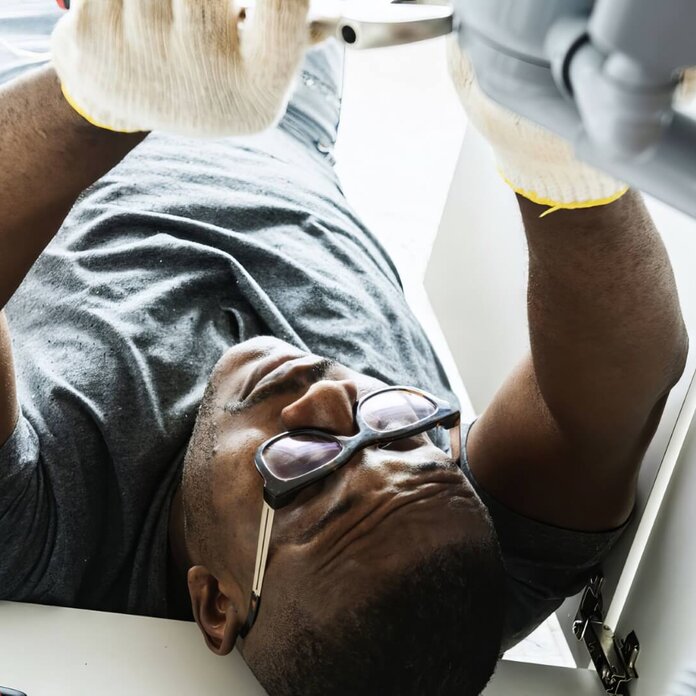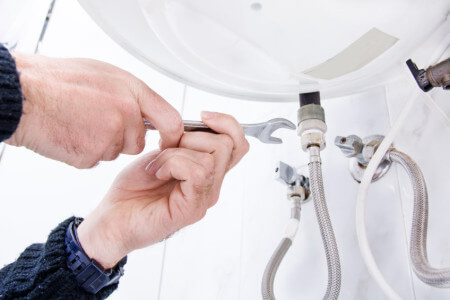Are you trying to locate advice around What to Do During a Plumbing Emergency?

Plumbing emergency situations can strike any time, triggering stress and anxiety and possible damages to your home. Whether it's a ruptured pipeline, a clogged up drain, or a leaky faucet, knowing exactly how to take care of the circumstance up until a specialist plumbing professional arrives can save you from further issues. This write-up provides vital emergency plumbing suggestions to aid you minimize damages and reclaim control during a plumbing situation.
Turn Off the Water System
The first step in any plumbing emergency situation is to shut off the water supply. For localized problems, such as a dripping tap or toilet, shut off the shutoff near the component. In the case of a major leakage or ruptured pipe, locate your home's main water shut-off valve and transform it off immediately. Knowing the location of these valves ahead of time can save useful time during an emergency situation.
Address Tiny Leakages with Momentary Repairs
Tiny leaks can rapidly come to be significant issues if left unchecked. Utilize these short-lived fixes up until specialist help shows up:
While these repairs aren't irreversible, they can aid minimize water loss and damage.
Unclog Drains Pipes Securely
A clogged up drain can be an aggravating and unpleasant concern. Below's how to tackle it:
If these methods don't work, prevent making use of too much pressure, as it might worsen the blockage.
Handle Overflowing Toilets
An overflowing bathroom can create prompt disorder. Here's what you ought to do:
Shut Off Your Water Heater
In particular emergency situations, such as a ruptured pipeline, it's smart to turn off your water heater. This avoids overheating or damage to the unit when water quits moving. Shut off the power supply to the water heater (electrical or gas) and allow it cool to avoid possible dangers.
Momentarily Quit a Ruptured Pipeline
A ruptured pipeline can bring about substantial water damages in mins. To minimize the concern:
Call a specialist plumber promptly to resolve the trouble completely.
Deal With Frozen Pipeline Thoroughly
In cooler environments, frozen pipes are a common emergency situation. If you presume a frozen pipe:
Stop Additional Damage
Taking quick action to decrease damages can conserve you time and money over time. Here's how:
. Have an Emergency Plumbing Kit
Prepare a basic plumbing emergency situation package to manage small problems efficiently. Your kit should include:
Having these devices handy can make a considerable distinction in your capacity to handle emergencies.
Know When to Call a Professional.
While quick fixes can aid briefly, specific plumbing concerns call for instant professional focus. Call a plumber if:.
Quickly speaking to an expert ensures the concern is fixed correctly and avoids further difficulties.
Conclusion.
Pipes emergencies can be frustrating, yet with the best knowledge and devices, you can handle the situation properly till assistance gets here. By switching off the supply of water, dealing with tiny leakages, and using temporary solutions, you can reduce damage and maintain your home safe. Remember, these pointers are momentary services; constantly seek advice from a licensed plumbing technician to handle the source of the problem. Prep work and quick reasoning are your best allies in any kind of plumbing emergency situation.
Expert Tips for Emergency Plumbing Repairs
Plumbing emergencies can be incredibly stressful and inconvenient. Whether it’s a burst pipe, a clogged drain, or a leaky faucet, these common plumbing emergencies need immediate attention to prevent further damage to your home. But before you panic, it’s important to understand the basics of plumbing repairs and the steps you can take to address these emergencies. In this article, we will share some expert tips to help you navigate through these situations and minimize potential water damage.
Identifying Common Plumbing Emergencies
Leaky pipes and faucets Clogged drains and toilets Burst pipes Low water pressure Water heater problems Essential Tools for Plumbing Repairs
Plunger: Useful for unclogging toilets and drains Adjustable wrench: Needed for tightening or loosening nuts and bolts Pipe wrench: Ideal for gripping and turning pipes Tape measure: Necessary for accurate pipe measurements Plumber’s tape: Helps create watertight seals Understanding Emergency Plumbing Services
Emergency plumbing services are designed to provide immediate assistance for unexpected plumbing issues that can cause significant damage to your home, business, or health. These services are typically available 24/7 and are staffed by experienced plumbers who can quickly diagnose and repair a wide range of plumbing problems.
When a plumbing emergency strikes, time is of the essence. Whether it’s a burst pipe flooding your basement or a gas leak posing a serious risk, emergency plumbing services ensure that help is just a phone call away. These professionals are equipped with the tools and expertise to handle any situation, minimizing damage and restoring your plumbing system to proper working order.
What Constitutes a Plumbing Emergency?
Burst pipes or water supply lines: These can cause extensive water damage and need immediate repair to prevent flooding. Gas leaks or suspected gas leaks: Gas leaks are extremely dangerous and require prompt attention to avoid potential explosions or health hazards. Sewer backups or overflows: These can lead to unsanitary conditions and significant property damage. Clogged drains or toilets causing water to overflow: Overflowing water can damage floors, walls, and other structures. Leaks or water damage causing structural damage: Persistent leaks can weaken the structural integrity of your home or business. No hot water or heating: A lack of hot water can be more than an inconvenience, especially in colder months. Common Causes of Plumbing Emergencies
Aging or corroded pipes: Over time, pipes can deteriorate, leading to leaks or bursts. Improperly installed or maintained plumbing fixtures: Faulty installations or lack of maintenance can result in unexpected failures. Tree roots or other debris infiltrating your sewer line: Roots can grow into pipes, causing blockages and backups. Frozen pipes or water supply lines: In colder climates, pipes can freeze and burst, leading to significant water damage. High water pressure or sudden changes in water pressure: Excessive pressure can strain pipes and fixtures, causing them to fail. Natural disasters such as floods or earthquakes: These events can disrupt your plumbing system and cause severe damage. Steps to Minimize Water Damage
Locate the water shut-off valve: Knowing where the valve is can help you quickly cut off the water supply to the affected area. Turn off the water heater: If there’s a risk of water coming into contact with the heating element, make sure to turn off the water heater to avoid potential accidents. Open faucets and drain pipes: By opening faucets and drain pipes, you can relieve pressure and empty any standing water. Collect and contain water: Use towels, buckets, or bins to collect water and prevent it from spreading to other areas of your home. https://leecountyplumbingandwellservice.com/expert-tips-for-emergency-plumbing-repairs/

Hopefully you enjoyed our part on What to Do While Waiting for an Emergency Plumber. Thank you so much for spending some time to read our article post. Are you aware of another individual who is occupied with the niche? Why not promote it. I am grateful for your time. Come back soon.
Prices & Booking